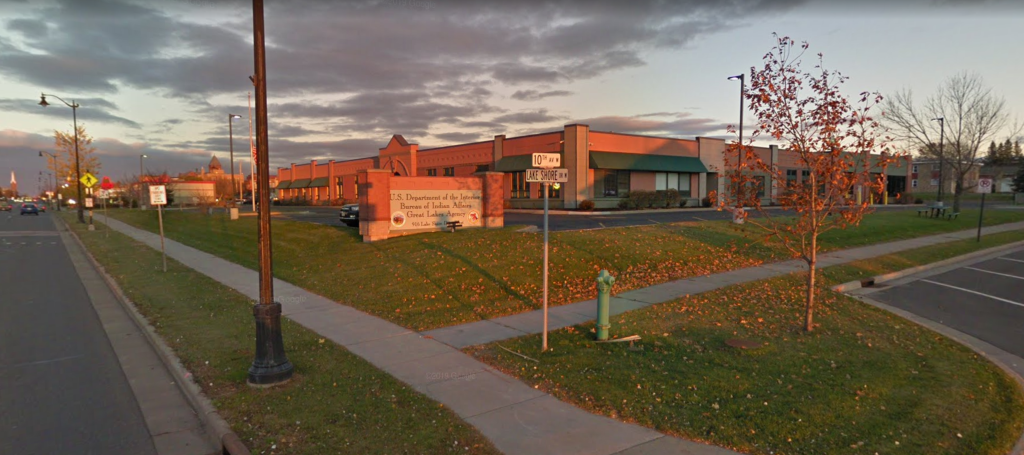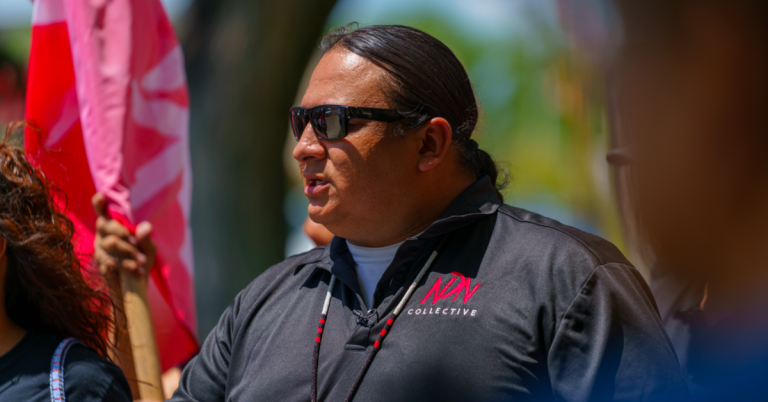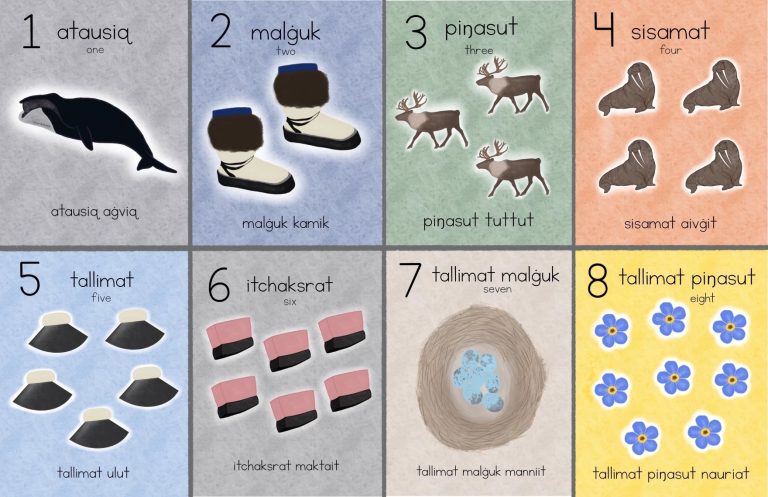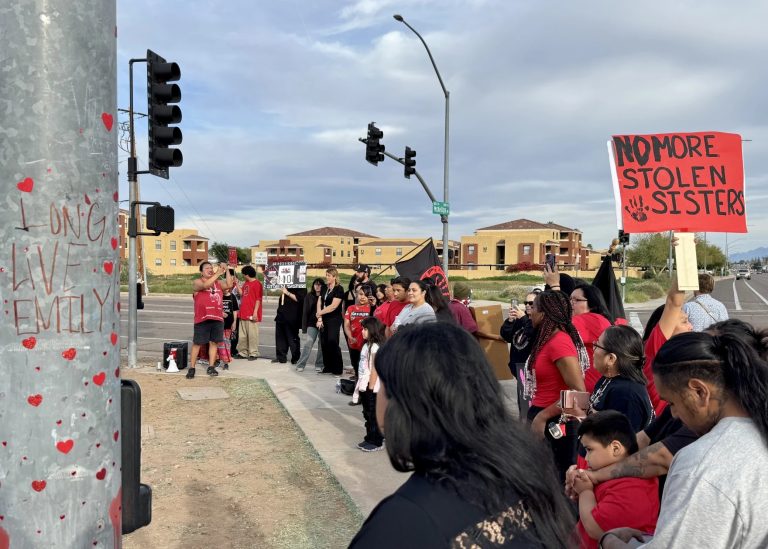Podcast: Play in new window | Download | Embed
Bureau of Indian Affairs (BIA) offices in Wisconsin and Minnesota remain open after the Department of Government Efficiency (DOGE) targeted them for termination.
As Danielle Kaeding reports, the initiative formerly led by billionaire Elon Musk had proposed canceling leases for several offices earlier this year.
The cancellations affected offices in Ashland and Shawano in Wisconsin and Bemidji in Minnesota.
Wisconsin tribes say the BIA office in Ashland is a critical regional hub that processes land trust applications and provides education assistance and law enforcement support.
Robert Blanchard is chair of the Bad River Band of Lake Superior Chippewa. He says closing the office would’ve been a hardship for the tribe.
“We would have probably had to go to Minneapolis or some other place further away from us to get services.”
Bill Broydrick represents the owner of the Ashland office. He says Wisconsin tribes adopted a resolution in opposition to its closure.
“On that basis, the decision was made by BIA to keep the office open.”
BIA says all three offices remain open.
The agency says it is working to ensure adequate space continues to be available to support delivery of services to tribes.
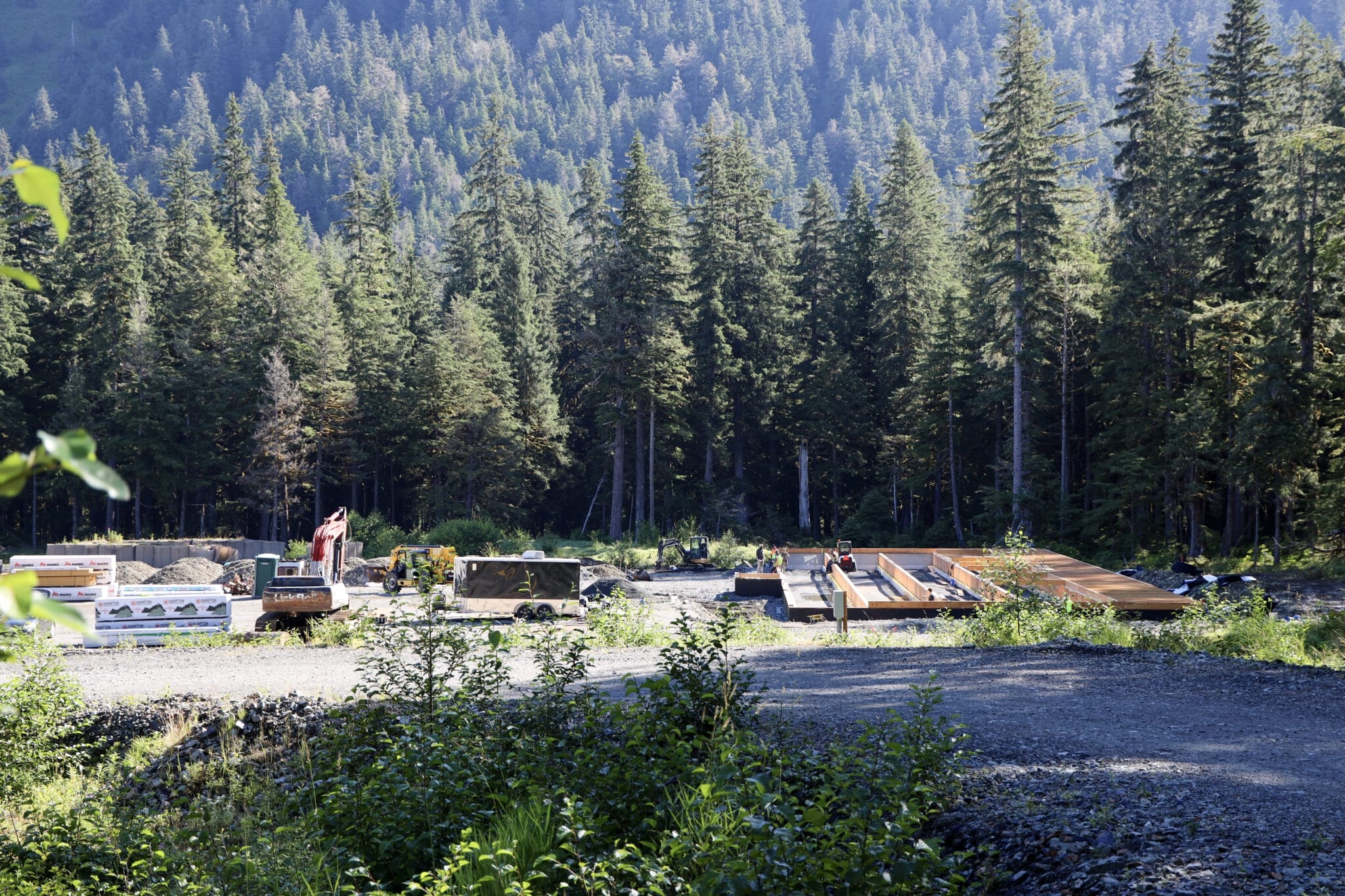
Construction is underway at a Native allotment on Douglas Island on August 6, 2025. (Photo: Clarise Larson / KTOO)
A site on Douglas Island could be the future home of a casino-like gambling hall after a proposal from the Central Council of the Tlingit and Haida Indian Tribes of Alaska was approved by the National Indian Gaming Commission.
Tlingit and Haida says the facility’s approval represents a step toward economic self-sufficiency and sovereignty for the tribe.
KTOO’s Clarise Larson has more.
The land is on Fish Creek Road, not far from Eaglecrest Ski Area on Douglas Island.
It’s just a small piece of a Native allotment owned by tribal members who lease it to Tlingit and Haida.
Tlingit and Haida spokesperson Dixie Hutchinson confirmed that the tribe is developing a gaming facility.
The tribe intends to offer Class II gaming, which covers things like pull tabs, bingo, and slot-style electronic machines.
The National Indian Gaming Commission’s acting chair approved the tribe for site-specific gaming at the location in January.
The decision came just days before President Donald Trump began his second term in office.
For decades, federal officials — and state officials in Alaska — have said that Native allotments owned by tribal members in Alaska were NOT considered “Indian country.” Therefore they are not under the jurisdiction of tribes and cannot be home to casinos or casino-like gambling halls under the Indian Gaming Regulatory Act.
But Michelle Jaagal Aat Demmert, a professor at the University of Alaska Fairbanks’ tribal governance department, says the legal interpretation of Native allotments shifted when former President Joe Biden came into office.
“During the Biden administration, there was a solicitor’s opinion that evaluated the laws and made the determination that the laws supported that Indian tribes in Alaska have jurisdiction over allotments and other land that’s classified as Indian country.”
She says gaming serves as an important governmental function for many tribes in the U.S.
“People look at it that it’s just this big money-making operation, but it’s so much more than that. It’s an opportunity to make money and an opportunity to put that right back into your governmental system, to provide essential services to your citizens.”
Hutchinson says the project is still in the early phases of development. She says the tribe intends to reinvest the gaming hall’s revenue into essential tribal programs and services.
Get National Native News delivered to your inbox daily. Sign up for our daily newsletter today.
